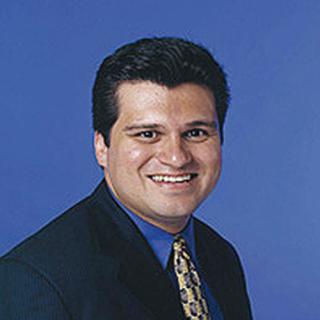
[OP-ED]: A familiar voice with an all-too-familiar story
MORE IN THIS SECTION
It’s the story of the seasoned baseball player who wonders if the team will keep him on the roster long enough for him to get his 3,000th hit. And the tradesman who worked in a coal mine in Pennsylvania, or a lumber mill in Michigan, or a metal factory in Ohio only to watch his job disappear just as he got the hang of it.
Yet it’s also the story of a talented journalist who -- after going almost everywhere, seeing just about everything and telling nearly every story -- finds himself out of work and hustling to piece together enough opportunities to pay his bills, support a family and avoid giving up on a profession that he loves.
In this era of so-called fake news, Ray Suarez is a real newsman. Having come up the hard way in the 1970s and ‘80s -- when the phrase “television newscaster” conjured up images of Mike Wallace or Harry Reasoner and not a Puerto Rican kid from Brooklyn -- this 60-year-old veterano is simply the standard to which many young Latino journalists still aspire.
In a career spanning nearly four decades, Suarez has anchored a nightly newscast for PBS, hosted a daily show on NPR, penned op-eds, worked as a foreign correspondent, given speeches, written books and lectured at the college level.
In November 2013, the veteran journalist was recruited to join Al Jazeera America, where he was given something that the other broadcast networks with which he had been affiliated -- ABC, CBS, NBC, CNN -- had always withheld: an offer to host his own daily news show. But Al Jazeera America folded in April 2016, and Suarez was suddenly out of work.
I decided to check in on my old friend, whom I’ve known for 20 years.
What I got was a raw and honest conversation that reflects the experience of millions of older workers across the country.
“These days, I’m more self-employed,” Suarez told me. “But in my dark moments, I just wonder if I’m done.”
Not likely. He has plenty of work -- guest-hosting stints on a handful of radio shows, collaborating on a documentary, writing another book, interviewing prominent people in live stage shows. He recently flew to Las Vegas to interview singer Linda Ronstadt.
For many people, that would be -- as they say in Texas -- enough to say grace over.
RELATED CONTENT
“Luckily, I have work to do, just not enough!” he said. “I should be busier.”
This is a guy who is used to working 60-80 hours per week at a half-dozen jobs. At the center of it all, there was one steady full-time job that gave him the security of a regular paycheck and health benefits. Now that’s gone. And he’s “gigging” in various media while looking for the next big opportunity.
“I’ve got a pretty good body of work, and a very attractive resume,” Suarez said. “But finding the right door back into the newsroom has not been easy. I have good days and bad days.”
He also has company. Millions of Americans have those kinds of days. These are the folks who have, for decades, paid their dues and played by the rules. They feel as if they have another 10 or 20 years of work in them, but they’re not sure their industries will last that long. They feel as if life has pulled the rug out from underneath them, and that it’s not fair. And they’re right.
Understandably, my friend is a little insecure about the future and unsure whether he will ever be back on television.
“I don’t feel like I’m done with TV,” he said. “I hope TV feels like it’s not done with me.”
For now, he’s writing a lesson plan. In the fall, he’ll be a visiting professor of American studies at Amherst College in Massachusetts.
“I still count myself a lucky guy,” he said.
Suarez is a lucky guy. And now more than ever, when there is such public contempt for journalists, we’re all lucky that there are still a few out there like him.







LEAVE A COMMENT:
Join the discussion! Leave a comment.